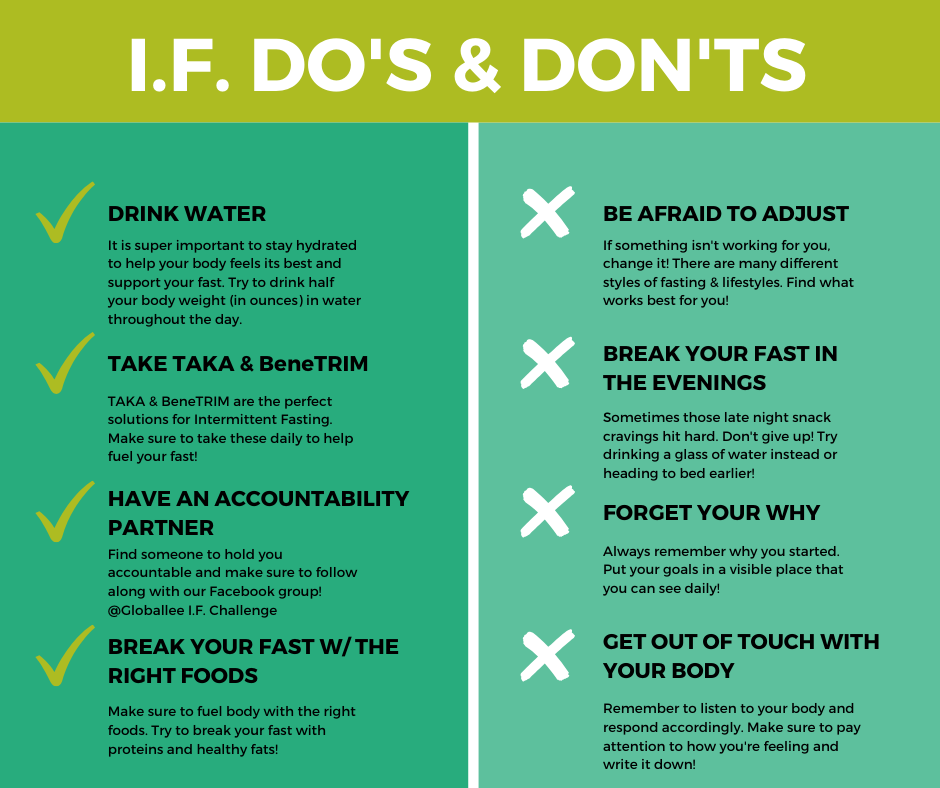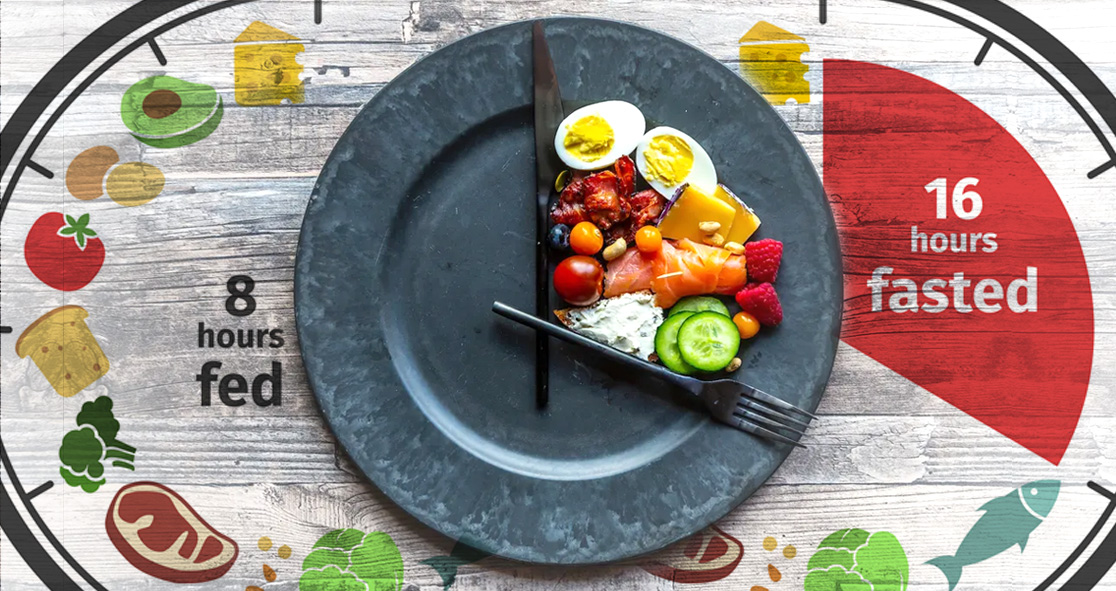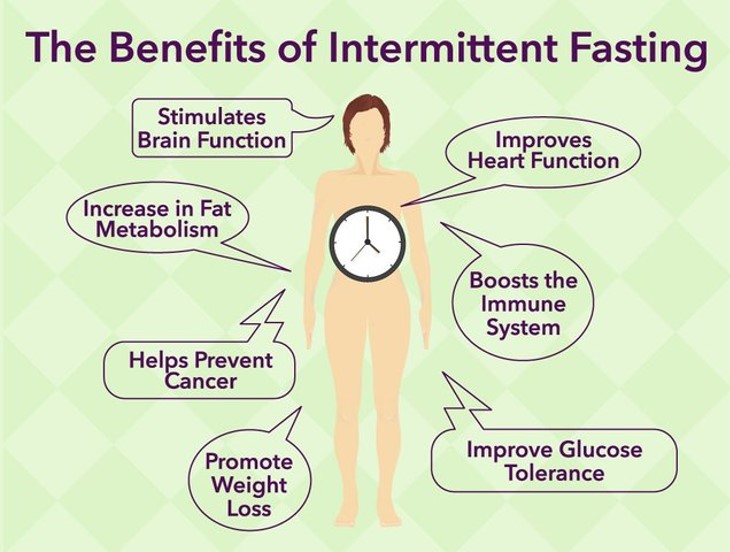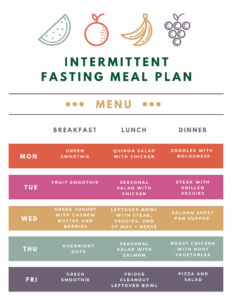 Intermittent fasting has become a developing trend in the field of health and fitness these days. With many diets ruled out as being unsustainable and harsh on the body, many others have emerged as being a healthier alternative towards losing weight and improving overall health. Intermittent fasting is one of them. It does not only reset your body and improve your gut health but can also result in additional mental and physical benefits.
Intermittent fasting has become a developing trend in the field of health and fitness these days. With many diets ruled out as being unsustainable and harsh on the body, many others have emerged as being a healthier alternative towards losing weight and improving overall health. Intermittent fasting is one of them. It does not only reset your body and improve your gut health but can also result in additional mental and physical benefits.
If you’re ready to learn more about the benefits and drawbacks of intermittent fasting, then don’t worry… I’m here to give you the 4-1-1. Here is a breakdown of what intermittent fasting is along with its pros and cons. After reading this article you’re sure to be well versed with intermittent fasting and decide whether it is suitable for your fitness and health goals or not. Read ahead to learn more.
What Is Intermittent Fasting?
This question is often asked by many individuals that are new to the concept of fasting. Let’s break it down in simple terms. Intermittent fasting as the name suggests comprises of a pattern of eating and fasting i.e. a period of rest where food is not consumed. This, therefore, does not focus too much on what kinds of foods are consumed, but rather on when the food can be consumed. Intermittent fasting can have patterns or periods of eating and fasting ranging from 16 hours of fasting to 24 hours of fasting. The number of times it is done per wee
k can vary depending on your health and fitness goals.
The Methods Used
There are several variations of I-F that can be followed. They seek to split the day or week into periods of eating vs. resting i.e. fasting. You can experiment wit
h the different approaches and see which one fits in well with your eating habits and daily routine. Some of them are as follows.
- The 16/8 Method

This is the most common method that is used when it comes to intermittent fasting. This is known as the Leangains Protocol. Here breakfast is skipped and food is consumed between a window frame of 8 hours. The remaining 16 hours of the day are where fasting is observed. For instance, you may eat between 12 p.m. till 8 p.m. and fast the remaining hours.
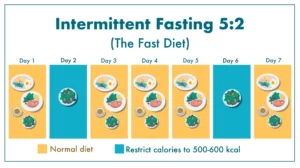
2. The 5:2 Diet
Here the number of calories consumed is calculated and followed. Two consecutive days of the week are where 500-600 calories may be consumed whereas the rest of the 5 days consuming food normally may follow.
3. Eat-Stop-Eat
In this approach, fasting is conducted for 24 hours. This can be once or twice a week. 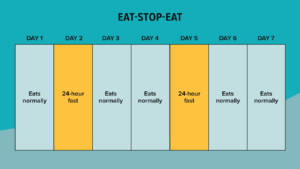
Pro-Tip – In addition, it is important to note that during periods of fasting, it is advisable to keep yourself well hydrated by drinking plenty of water. This helps prevent your body from getting dehydrated and making it difficult to conduct daily tasks. This can also include, tea, coffee, and other non-caloric drinks without sugar or milk.
The Benefits of Intermitted Fasting
The benefits of I-F are plenty. From mental health improvement to physical wellbeing, intermittent fasting can do wonders for your body. Here are some of the benefits of intermittent fasting that you should be aware of.
- Weight loss- Intermittent fasting plays an important role in helping you lose weight. This is why it has gained popularity in recent years. And, you don’t have to necessarily restrict your calorie intake or avoid certain foods for this You can still consume your favorite foods and lose weight alongside.
- Reduction in inflammation – Intermittent fasting helps your body heal from inflammation. This also reduces the risk of certain diseases and cancer.
- Improves heart health – Intermittent fasting reduces LDL cholesterol in your body. This low-density lipoprotein is often labeled as “bad” cholesterol which aids in clogging up arteries and increasing the risk of cardiovascular diseases.
- Detoxification of the body – by allowing your body to rest and depriving it of food, detoxification of your body and gut can take place. Thus helping your gut cleanse itself and improving the process of antiaging.
- Regulates blood sugar levels – Intermittent fasting is also known for reducing insulin resistance, thus preventing type 2 diabetes from developing in your body.

The Drawbacks You Should Know Of:
While intermittent fasting may have gained popularity for its health benefits, it also comes with certain drawbacks. For one, you may feel hungry. Hunger pangs are a common side effect that can make you binge eat a lot more than you should. In addition, brain fog and dehydration are a common side effect that follows as well. This is especially the case if you do not have a habit of consuming the required 6-8 glasses of water per day.
Often, people are also concerned about muscle loss with intermittent fasting. Unfortunately, muscle loss is a common drawback, thus making it important to up your protein intake and engage in strength training while following intermittent fasting. Similarly, weakness and nutrient deficiency can also arise. To avoid this oral supplements that are fat-soluble can be consumed. That’s not all, intermittent fasting is also not recommended for people with certain health conditions. For people with diabetes, low blood pressure, anemia, or eating disorders, intermittent fasting may not be a viable option. This is also the case for women who are pregnant, trying to conceive, or have a history of amenorrhea.
The Bottom Line
Intermittent fasting is a great way to become healthy and lose weight. It is sustainable, affordable, and helps your body reset and rebalance its hormones. Thus also aiding towards a healthy gut and improving overall mood. It’s the perfect way towards a healthier and happier lifestyle. So, if you’re thinking of giving it a try, then keep all the benefits and drawbacks in mind. You can even consult a nutritionist to help guide you better to avoid any nutritional deficiency from arising. Kick start your journey to a better life by intermittent fasting, it is a lifestyle change that is truly worth it if done right!
